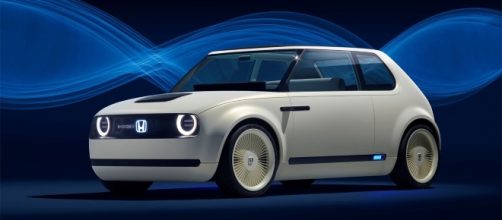All-electric superminis are fast wending their way into the marketplace. The eco-friendly automotive technologies were highlighted at the 2017 Frankfurt Motor Show, where innovative and unstoppable forces in the global automotive industry presented their take on tomorrow’s supercars.
Car makers like Nissan Motor Co., Ltd., Toyota, and Mitsubishi may have been on the frontline as far as allocating substantial R&D for the roll out of cars with zero carbon dioxide emissions. Not that far behind is Honda, which is gearing to actualize its Electric Vision strategy in Europe by 2025.
Honda hopes to bring electrified technology in two thirds of its new car sales by 2030, buoyed by consumer's receptivity to electrification. Interestingly, the Honda Urban EV Concept was unveiled during the Frankfurt Motor Show 2017.
As Honda CEO Takahiro Hachigo announced at the prestigious car show, the production version of the Honda electric city car will zoom into Europe in 2019. The sporty looking EV combines futuristic design with retro styling reminiscent of the Honda 1970s Civic and N600 model. The Honda Urban EV – slated to enter production in 2019 – is touted to become a contender of the compact BMW i3.
Other supercars on the horizon
Other riveting EV options showcased at the 2017 Frankfurt Motor Show included AICON, a four-seat electric vehicle with a range of 435 miles from Audi; and the Concept EQA from Mercedes Benz.
Outside the motor show, various companies have announced their take on electric vehicles that will cruise streets in the not-so-distant future. British manufacturer Ariel’s own electric supercar will be very swift, stylish, and powerful. The Ariel P10 will have 1,180 horsepower and 1,328 lb-ft of torque. This will allow the car to go from 0-100 mph in just 3.8 seconds, Autoblog reported.
Continuing investments
Established names in the automotive industry have long studied and poured investments into developing electric cars that contribute to a cleaner environment. Scrutiny has been given to addressing drawbacks, including the shorter distance an EV travels compared to its gas-powered vehicle counterpart; and the longer period of time it takes to charge a battery compared to gassing up.
Toyota and Mazda are among the companies that have partnered to develop core electric vehicle technologies. Nissan and Renault have also collaborated to come out with new-generation Leaf and Zoe models. The Nissan Leaf 2018 will roll out in Europe in January 2018, and in early October in Japan, then in the US, Canada and Europe.


